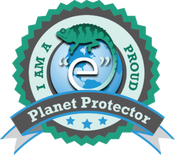|
On March 29, 2017, the European Commission issued Commission Regulation (EU) 2017/605, which amends Annex VI to Regulation (EC) No. 1005/2009 of the European Parliament and of the Council on substances that deplete the ozone layer. The 2009 Regulation establishes cut-off dates after which halons should not be used for fire extinguishers and fire protection systems in “new equipment.” The 2017 Regulation clarifies the definition of “new equipment” that is regulated under the 2009 Regulation. Under the 2017 Regulation, the definition of “new equipment” depends on the date of submission of a request for certification to the appropriate regulatory authority. The 2017 Commission Regulation entered into force on the 20th day following its publication in the Official Journal of the European Union.
The State Administration of Work Safety released two sets of provisions in late March 2017. The first is in regard to hazardous chemicals production, and the second provides requirements for oil and gas fire tank protection.
The Ten Provisions on Hazardous Chemicals Enterprise Production Safety Assurance includes the following requirements:
The Ten Provisions on Oil and Gas Tank Fire Protection includes the following requirements:
The Ministry of the Environment and Energy for Sweden has adopted Electrical Safety Regulation (2017:218). The Regulation repeals: Installers Regulation (1990:806), Regulation on Electrical Equipment (1993:1068) and Power Regulation (2009:22). The Regulation was created to support the Electrical Safety Act and entered into force on July 1, 2017.
The Regulation specifies stringent demands as to how facilities work with electrical safety. Specifically, the Regulation sets out restrictions for entities that develop and operate electrical installations, establishes safety requirements for the use of electrical equipment, and obligates public notice, reporting and recordkeeping. The Regulation also establishes other procedural requirements for authorization of electricians and development of power cables in areas of traffic, among many other things. Electrical equipment that does not meet the applicable requirements will be reported by the Electrical Safety Authority to the European Commission and other Member States of the European Union. The European Parliament adopted new rules on mineral imports from conflict zones. These rules follow nearly two and a half years of debate and negotiation. They will enter into force on January 1, 2021 and will apply across all EU member states.
Under the rules, all but the smallest EU importers of tungsten, tantalum, tin and gold must ensure that their supply chains are not linked to armed conflicts, including those in the Democratic Republic of Congo (DRC) or in Africa’s Great Lakes region. The drafters incorporated provisions to revise the law to include and exclude certain regions depending on changes in political climate. The “due diligence” requirement aligns with the Organisation for Economic Co-operation and Development (OECD) guidelines and has the potential to change the lives of individuals caught in armed conflict. The reason for the new rules is to attempt to prevent the vicious cycle affecting mineral-rich countries afflicted by conflicts. South Africa: Public Comment Period Opens on Draft Coastal Waters Discharge Permit Regulations3/10/2017
On March 10, 2017, the Department of Environmental Affairs for South Africa published a draft regulation for public comment. The draft Coastal Waters Discharge Permit Regulations was developed as part of the National Environmental Management: Integrated Coastal Management Act, 2008. The draft regulations include requirements for applications for coastal waters discharge permits, information on assessment of application and site inspection, and conditions for approval and permit renewal. The draft also sets contingency plans and fee schedules for permit holders.
Interested individuals had to submit representations or comments regarding the draft regulations within 30 days after publication in the Government Gazette. The Ministry of Labor in Taiwan, along with the Occupational Safety and Health Administration of Taiwan, released the recommended Global Harmonized System of Classification and Labelling of Chemicals (GHS) classifications for 6000 hazardous substances in early March. The classifications are based primarily on the classification and labeling inventory maintained by the European Chemicals Agency (ECHA) and the recommended classifications of other international databases.
Denmark has notified the European Commission of changes to its legislation restricting the use and sale of new wood-based materials that emit formaldehyde. The Order states that wood-based materials that emit formaldehyde in a concentration above 0.124mg/m3 should not be used in the manufacture of furniture and related parts. For sales of fixed and movable objects, which also includes furniture, the concentration limit is 0.134mg/m3. The restriction will not apply to existing furniture and parts that comply with current Danish standards, and those manufactured for export to non-EU countries. The Order also excludes construction products, furniture padding, and upholstery. Limits may be waived in special cases and conditions may be set for permits. The new limits will become effective six months after the decree's entry into force for wood-based materials, and one year after for fixed and movable furniture.
|
Search Regulatory Compliance BlogBrowse by Topic
All
Browse Archives
January 2020
|

 RSS Feed
RSS Feed
